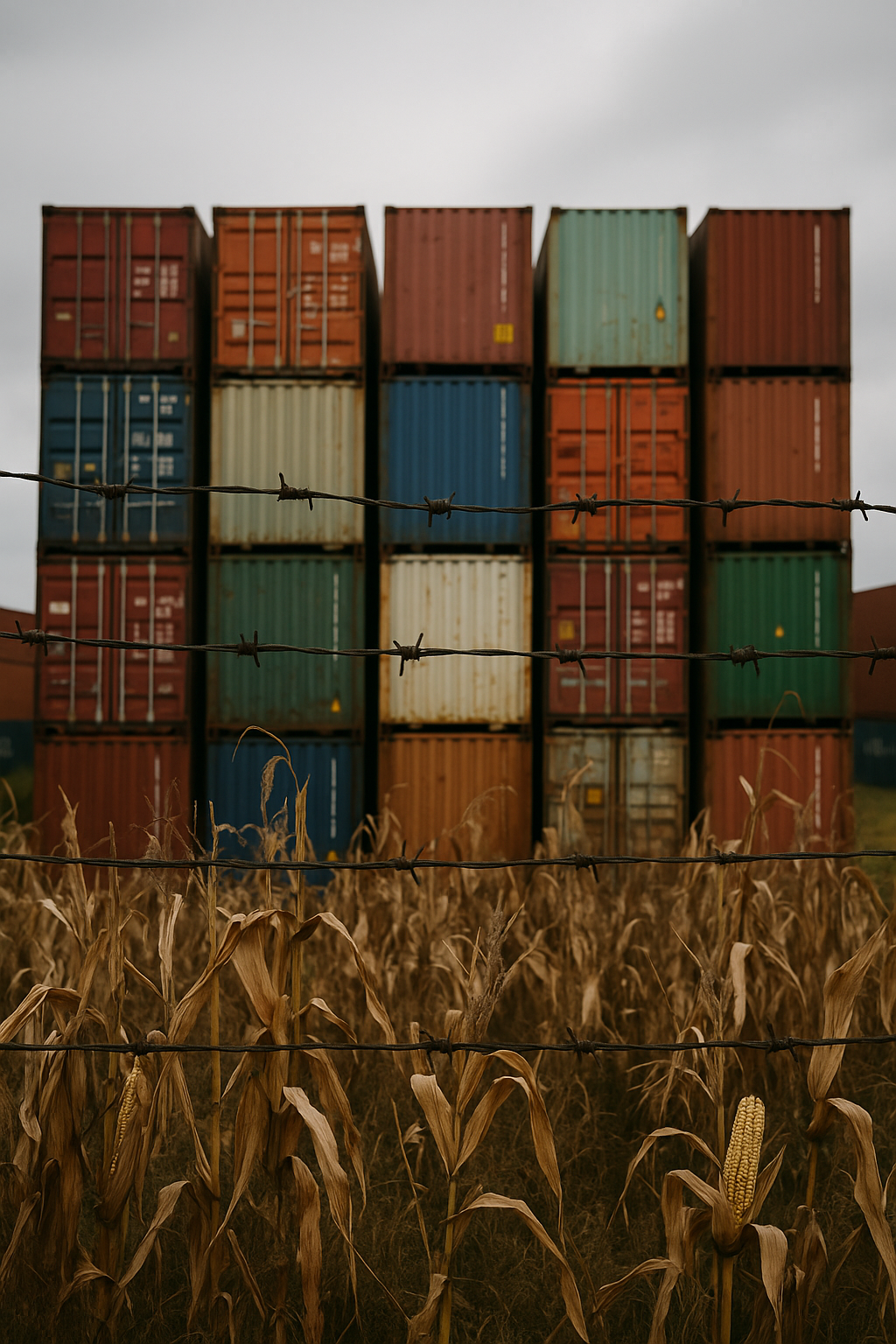Economic sanctions trigger food price surges and hunger risks worldwide
Evidence compiled by the authors shows that sanctions contribute to measurable increases in both food prices and hunger. Their own research indicates that sanctions raise food prices by 1.2 percent and undernourishment by 2.1 percent globally. The impact is especially severe in fragile economies dependent on food imports or limited in domestic production capacity.

A new editorial delivers a sharp assessment of how geopolitical tensions, economic sanctions, and fragmented trade governance are reshaping global agricultural trade. The paper, titled “Global Governance, Economic Sanctions and Agricultural Trade in a Fragmenting World Economy” and published in the journal The World Economy, synthesizes recent empirical findings to reveal the far-reaching consequences of sanctions and policy shifts on food systems, market access, and multilateral trade frameworks.
As the international order becomes more fractured, trade institutions are losing ground to unilateral policies, regional blocs, and environmental protectionism, all of which are undermining global agri-food value chains (GVCs). The authors warn that this fragmentation poses a growing threat to food security, especially in low-income and politically unstable regions. Their editorial integrates multiple studies that dissect the economic and humanitarian fallout of coercive trade tools, with a focus on measurable impacts on prices, supply chains, and undernourishment.
How are economic sanctions impacting global agricultural trade?
The review exposes the expanding use of economic sanctions as a geopolitical weapon, and their unanticipated effects on global food markets. Traditionally intended to punish governments and alter political behavior, sanctions increasingly carry collateral consequences, particularly for agricultural supply chains and food security in targeted and peripheral nations.
Evidence compiled by the authors shows that sanctions contribute to measurable increases in both food prices and hunger. Their own research indicates that sanctions raise food prices by 1.2 percent and undernourishment by 2.1 percent globally. The impact is especially severe in fragile economies dependent on food imports or limited in domestic production capacity.
The editorial highlights further case studies showing trade diversion, cost spikes, and supply instability. Yalcin et al. document how sanctions imposed on Russia by Western countries led to rerouted agri-food trade flows through India, China, and Turkey. Similarly, Lim and Suwanprasert examine how Thai agricultural exports were disrupted following Western sanctions after the 2014 coup, demonstrating how geopolitical conflicts spill over into developing economies.
Sanctions distort global agri-food value chains by blocking traditional trade routes and forcing exporters and importers to forge new, often less efficient, pathways. This rerouting not only raises costs but can also compromise food quality and consistency. Furthermore, these shifts often disproportionately affect vulnerable populations already at risk of food insecurity.
Are multilateral trade agreements losing their influence?
The study highlights the weakening role of multilateral institutions like the World Trade Organization (WTO) in managing agricultural trade. The authors argue that while these institutions were once effective in enhancing trade integration and mitigating protectionist pressures, their authority has declined amid rising nationalism and trade conflicts.
Studies featured in the issue, including contributions from Kim and Steinbach, Steinbach and Zurita, and Lamonaca and Santeramo, reveal a mixed record for recent trade agreements. For example, the WTO's Trade Facilitation Agreement, while promising, has seen uneven adoption and limited impact on the agri-food sector due to implementation delays and high compliance costs.
Other contributions, such as that by Du et al., focus on how political breakaways like Brexit create additional trade barriers. In the UK’s case, the disruption to intra-European agricultural trade has introduced new frictions, reducing exports and generating uncertainty for farmers and agribusinesses.
The editorial suggests that multilateralism is being replaced by a fragmented regime of bilateral agreements, regional trade pacts, and unilateral measures. While these may offer short-term strategic benefits, they erode the predictability and collective problem-solving capacity once offered by global governance systems. This institutional erosion hampers efforts to address shared threats like climate change, food insecurity, and commodity market volatility.
What policy lessons and research gaps emerge?
The study issues a call for strategic reform and deeper investigation into the evolving landscape of agricultural trade governance. It recommends that policymakers recognize the long-term drawbacks of sanctions and protectionist trade instruments, especially when they compromise food access in vulnerable nations.
The authors underscore the urgent need to rebuild and adapt global trade governance to accommodate the multipolar, politically volatile world that has emerged. Rather than retreat into isolated national strategies or inflexible sanctions regimes, governments should pursue inclusive, transparent frameworks that balance political objectives with humanitarian concerns.
Research by Emran and Schmitz adds nuance to the policy debate by showing that WTO-imposed tariff ceilings, while limiting short-term policy flexibility, can boost long-term export growth by creating stable rules of engagement. Yet these mechanisms are only effective when applied with strong institutional backing and enforcement.
The authors also point to a pressing need for granular research that examines how sanctions and governance shifts affect actors at the micro-level. Farms, cooperatives, and local distributors often bear the brunt of global policy swings, yet their experiences remain under-researched. They advocate for cross-disciplinary and cross-regional collaboration to develop resilient agri-food systems capable of absorbing external shocks. They stress that food security must be treated as a global public good and shielded from geopolitical manipulation.
Overall, the findings suggest that without renewed commitment to multilateralism and cooperative governance, global agricultural trade will remain vulnerable to political conflict, climate stress, and economic coercion. The world must prioritise rebuilding trust in trade institutions and protecting humanitarian food flows amid rising geopolitical tensions and eroding international cooperation.
- READ MORE ON:
- global governance and trade
- economic sanctions impact
- food security and sanctions
- WTO and agricultural trade
- tariff caps and agricultural exports
- geopolitical risks to food trade
- how economic sanctions affect global food prices
- WTO’s role in stabilizing agricultural trade
- impact of trade fragmentation on food security
- policy reforms for sustainable agri-food systems
- global food systems under geopolitical pressure
- FIRST PUBLISHED IN:
- Devdiscourse










